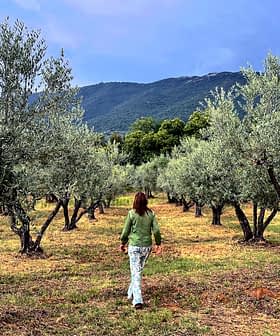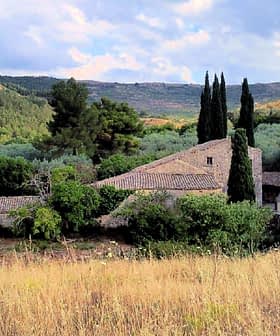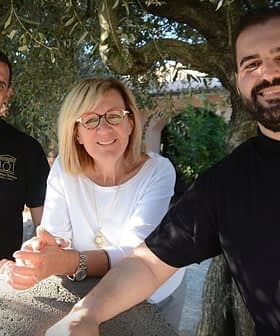Tunisian Producers See Promise in Olive Oil Tourism
Tunisian producers are exploring how olives, one of the country's biggest natural resources, can potentially lure a new kind of tourist.
 Reserve Familiale Ben Ismail
Reserve Familiale Ben IsmailTunisia has long been a tourist destination for mostly sun-seeking Europeans. But as alternative models for tourism are explored, there’s a new interest in developing opportunities for visitors to learn about aspects of Tunisian culture, including food.
It’s a simple aspect of Tunisian life and culture that can be fun and meaningful for travelers who want an authentic experience.
One-third of Tunisia’s land is covered in olive groves and a growing number of Tunisian olive growers are producing high-quality extra virgin olive oils. Thanks to growing international recognition for Tunisian olive oils, there’s a developing interest in the potential for olive oil tourism in this North African country.
Much like wine tourism, olive oil tourism (also called oleotourism) is a growing industry in olive-growing regions around the world. Inspired by the popularity of agrotourism in Europe and “olive oil roads” in Italy, Spain and Croatia, producers are now exploring how to apply this model in Tunisia.
Leo Siebert, an international development consultant living and working in Tunisia, is examining the potential for an alternative tourism model that could also create an impact in other ways.
“At an international olive oil symposium in Sfax earlier this year, I made a presentation on how to promote olive oil tourism in Tunisia,” Siebert told Olive Oil Times. “The idea generated interest and conversation, especially among producers and certain investors. Of course, this would mean a big investment and also potentially a big risk as olive oil tourism would be a new endeavor for the country. And it will require some buy-in and cooperation from the government.”
“But it also creates a second tourist season in the winter, during the olive harvest, once Tunisia’s traditional beach tourists have all gone home. For olive oil tourism to work, there is a need to create small hotels and bed and breakfasts in the country’s rural interior. So olive oil tourism presents a significant opportunity to diversify Tunisia’s tourism offerings while bringing sustainable development to rural communities.”
Initiatives in this new tourism product are already being put into action on a modest scale. A few producers already welcome visitors to their olive groves set in scenic landscapes and have recently set up tasting rooms and opportunities for guided tastings as well as classes led by sensory experts. Many others are planning to develop olive oil tourism in the near future and are taking the first steps.
Located in north-east Tunisia, just over an hour’s drive south of the capital Tunis, is the agricultural region of Zaghouan where olives have been cultivated for thousands of years. Segermès is a sixth-century Roman city that once stood here and the name of the olive farm and mill run today by Mounir Boussetta.
After a long professional career in France, in 2014 Boussetta turned his attention to developing Domaine de Segermès and the production of high-quality olive oil from the land and centuries-old olive trees he inherited from his father.
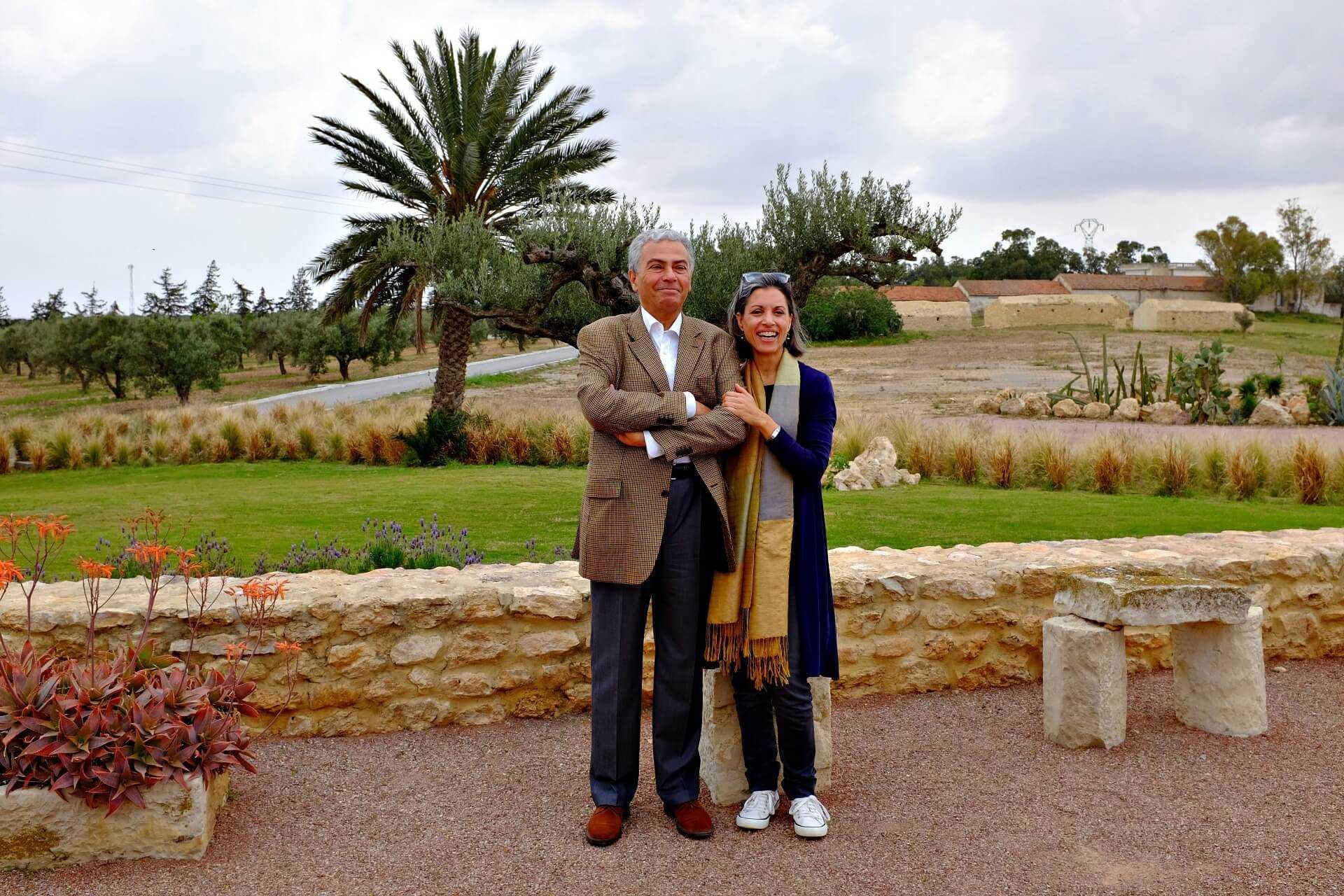
Mounir and Zohra Boussetta (Isabel Putinja)
Produced here are his organic extra virgin Chetoui and Chemlali olive oils that have won multiple international awards from BIOL Italy, Olive Japan and Mario Solinas.
On the 300 hectares of land making up the farm are not only olive trees but also ancient ruins, including an antique olive oil mill, the remains of a Byzantine church with part of its mosaic floors intact, as well as a sarcophagus and baptistery dating from the 6th century. Close by is a Roman water temple and aqueducts built in the year 122 by Emperor Hadrian.
The scenic landscape and mountain views, combined with historic Roman ruins, endless rows of olive trees, and an on-site production unit make this the ideal destination for olive oil tourism.
Set in beautifully landscaped grounds is a contemporary building designed by renowned Tunisian architect Adel Hidar housing the production unit which includes a two-phase mill, a storage area, bottling unit and even a lab. On the upper floor is a tasting room with floor-to-ceiling windows opening onto a spacious terrace with a view of the mountains in the distance.
“I would like to welcome olive oil lovers to our domaine,” Boussetta said. “Here we have terroir, spectacular landscapes, and even history thanks to the ruins located on our property. And of course, high-quality olive oil that has been produced in Tunisia for 3,000 years. We can also show visitors the entire production chain from tree to bottle. This is why I decided to explore how to develop olive oil tourism here. At the moment I’m testing this and will see which direction to go in.”
In the region of Tebourba, 60 km west of Tunis, the Mahjoub family of Les Moulins Mahjoub has been producing olive oil from the north Tunisian Chetoui variety for three generations. Since 1990 they have provided their organic olive oil and other food products like olive spreads, harissa, sun-dried tomatoes and capers to the Belgian bakery and fine food chain, Le Pain Quotidien, exporting to the U.S. and two dozen other countries.
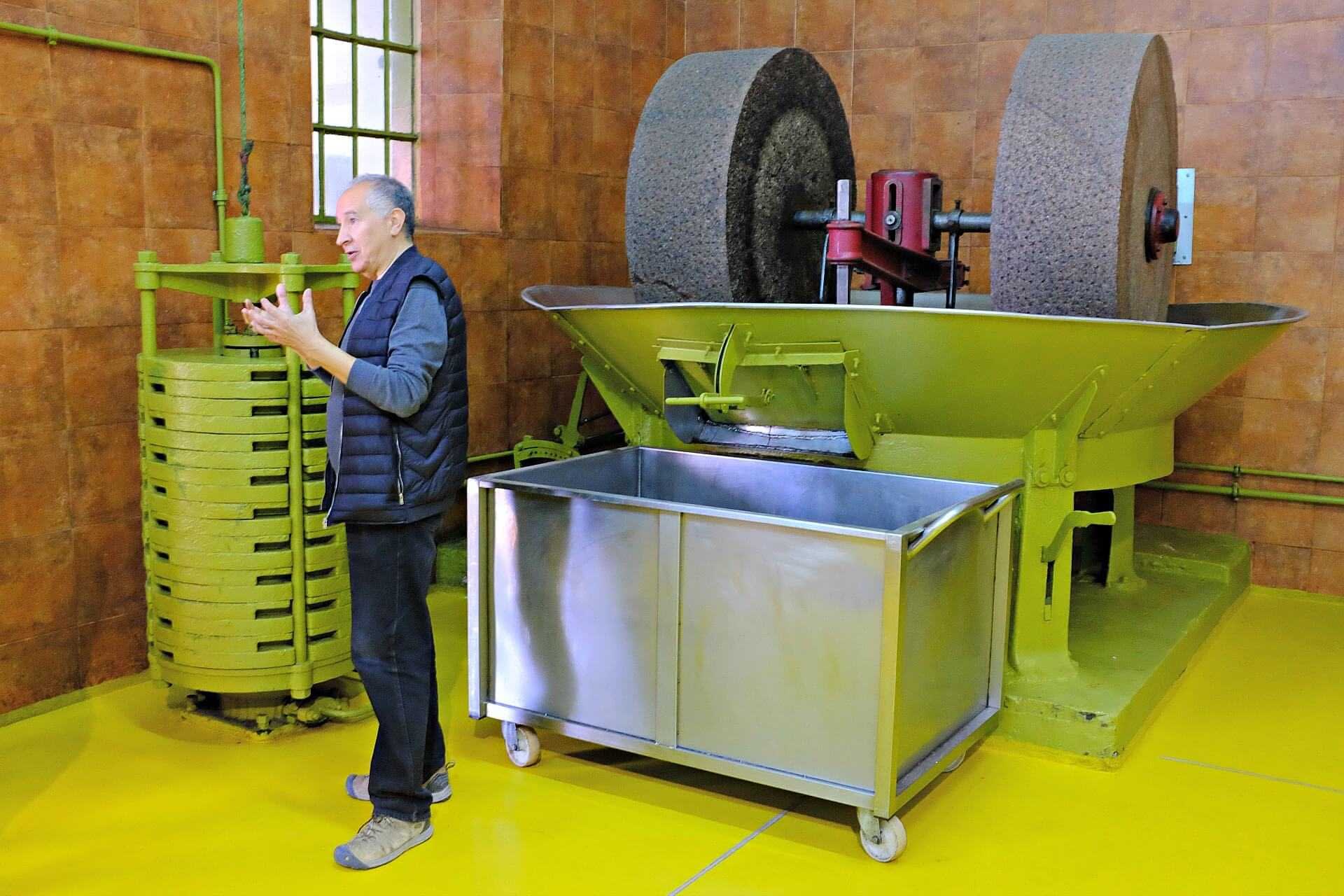
Abdelmajid Mahjoub (Photo: Isabel Putinja)
Visitors to the region are welcome to visit the family’s impeccably maintained traditional 135-year-old oil mill. The old family photographs on display in the office area add to the atmosphere of old world charm that reigns here. Behind the mill, a garage has been converted into a rustic-looking tasting area made up of reclaimed wine barrel tables and a small museum displaying a 2,500-year-old stone press, amphora, traditional tools and informational panels.
Though many Tunisian producers have switched to modern two-phase mills, there are traditional mills like this one using granite millstones and hydraulic presses still in operation across the country. Through this traditional process, the oil is not separated by centrifugation like in modern mills but through natural decantation, or cold static decantation.
The pros and cons of each method is a hotly debated topic, but the cold-pressed oil produced by Moulins de Mahjoub is not only certified organic but also meets the chemical and organoleptic requirements to be labeled extra virgin.
This traditional know-how is part of the family’s philosophy. “It’s not because we are against modernity,” explains Abdelmajid Mahjoub, general manager of the family business. “We want to link tradition and modernity while maintaining quality. For me, the modern process is sterilized.”
“What we’re doing is ‘haute couture’ and not ‘prêt-à-porter’,” he explains, making the analogy between high-quality handcrafted goods and industrially-produced products. “Our products are handmade and just like our mothers would make at home. It’s this social link that gives the exceptional taste to our products.”
Forty-five kilometers south-west of Tebourba in the governorate of Beja is Toukaber, the ancient site of Thuccabor, a former Roman city at an elevation of 620 meters. Few tourists venture here but this is perhaps one of Tunisia’s most picturesque regions. From the Ben Ismail family’s farm, Réserve Familiale Ben Ismail, is a sweeping view of rolling hills reminiscent of Tuscany.
Inspired by the triumphal arch of Thuccabor, one of the ancient monuments making up the Roman site that’s their ancestral home, the family named their brand Triomphe Thuccabor. Launched in 2016 by Mohamed Ben Ismail and his sons Maher and Salah, this organic extra virgin olive oil is an intense fruity organic Chetoui that has been recognized by international awards in Athens, London and Los Angeles, and is exported to Japan, France and Switzerland.
Earlier this year, the Ben Ismails opened Tunisia’s first olive oil bar in a dedicated space on the family farm, which also includes an on-site boutique and an education center where weekly training workshops are offered in sensory analysis led by an expert.
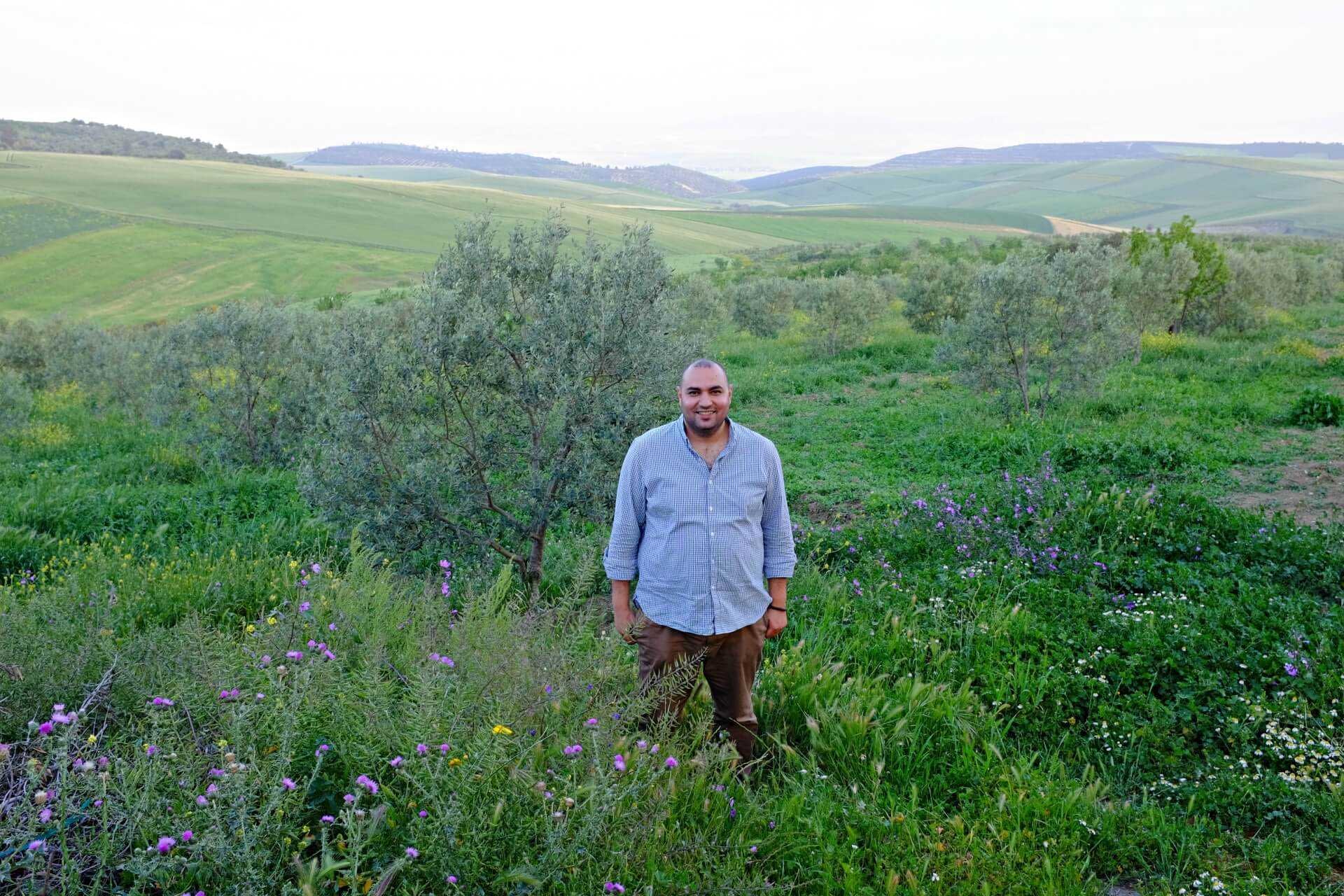
Maher Ben Ismail (Isabel Putinja)
“Olive production can vary from one year to the other so in order to have a stable income as olive producers we thought about looking into olive oil tourism,” said Maher Ben Ismail of the family’s decision to actively welcome visitors to their farm. “We got the idea for this project after visiting farms in Italy and Spain where a lot of work has been done in the field of olive tourism. This can also increase the visibility of our products and at the same time attract visitors to our region.”
Visitors to the Ben Ismail’s domaine are greeted personally by a member of the family and given a tour of their groves and on-site production unit. So far, a dozen training workshops in sensory assessment have been held here, while numerous groups from mostly European countries have visited the farm. Advanced training for olive oil professionals is planned for the near future.
As producers set up the necessary facilities to welcome olive oil lovers to their farms in northern Tunisia, it’s in central Tunisia that perhaps the very first initiative related to olive oil tourism was introduced.
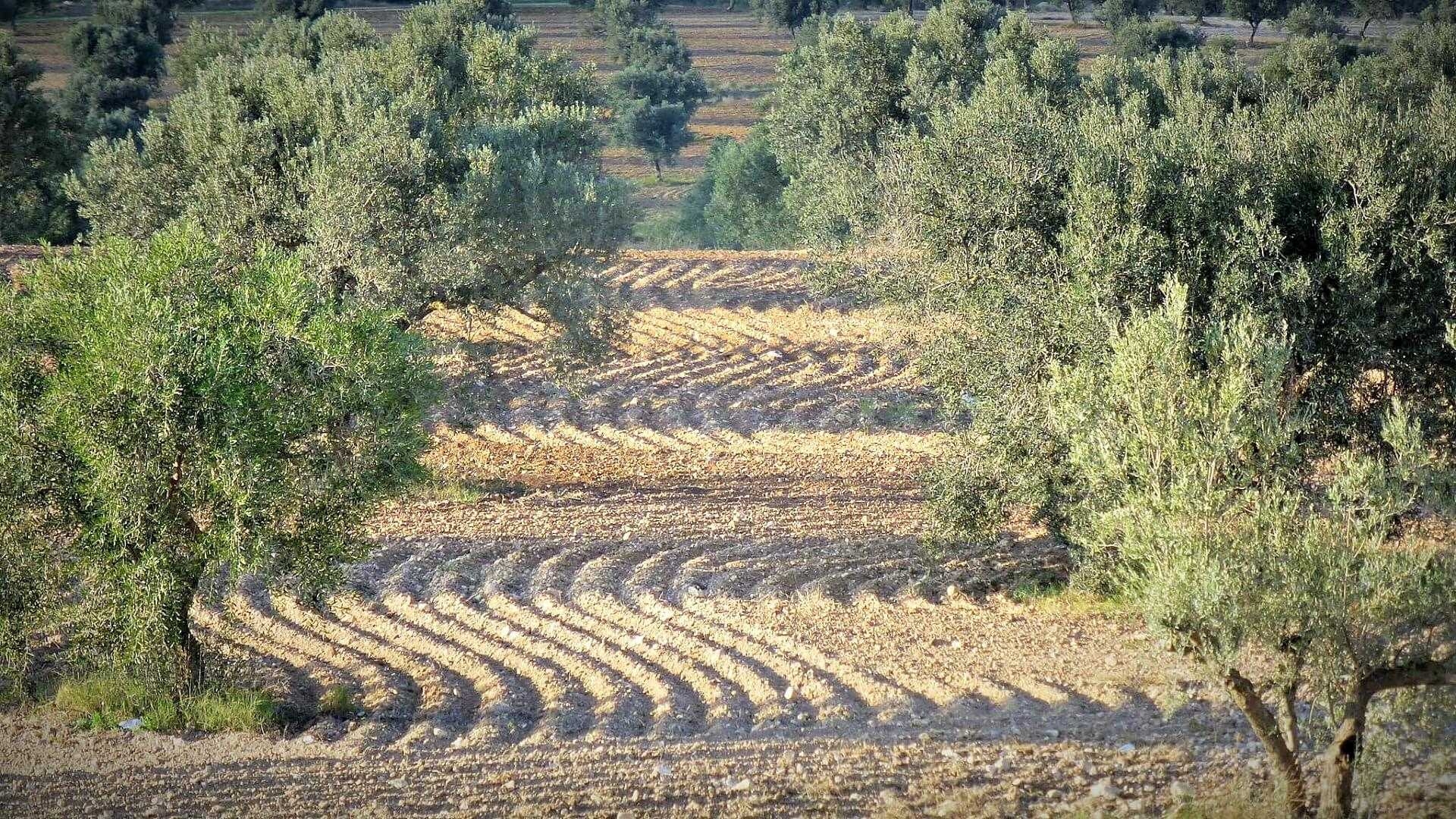
Domaine de Segermes
Engaging Cultures is a socially-conscious travel company working in Egypt, Jordan, Palestine and Tunisia that caters to independent travelers interested in engaging with local cultures through unique experiences.
“It started with an idea based on the principle of our company: to help travelers experience the culture and people of Tunisia,” Sfax-based Austin Hand told Olive Oil Times. “In Tunisia, olive oil production is not mass-produced and is very family-based and essentially a family event: the more people, the better. If someone can experience this it’s actually something simple that ties in so many aspects of Tunisian culture.”
Among the unique experiences Engaging Cultures offers travelers is the chance to visit olive groves in the Sfax region and participate in a harvest during the winter season. An educational introduction is provided to the different olive varieties grown in the country and insights into what it’s like to tend an olive grove and how to know when olives are ready to be harvested.
After a picnic lunch at the grove, participants visit a mill in Sfax to see the extraction process. “The reactions we’ve had from guests have been very positive,” Hand said. “Some have said that connecting and relating to a family environment through the experience of a harvest was the highlight of their tour.”
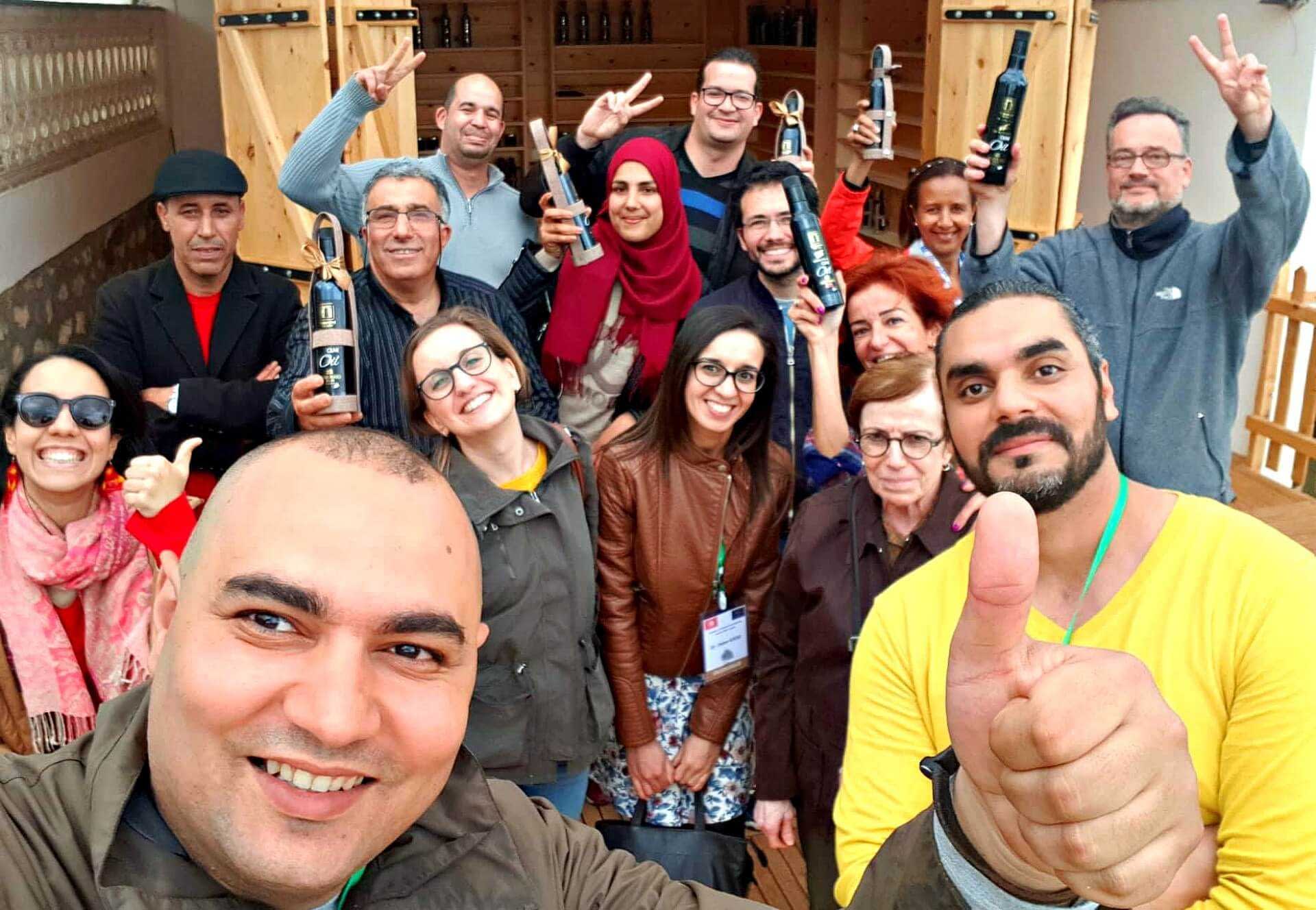
Reserve Familiale Ben Ismail
“I think there’s definitely potential to further develop olive oil tourism in Tunisia,” he added. “It wouldn’t take a lot of resources or special equipment. If producers are interested in hosting traveling guests it takes only a bit of preparation. It’s a simple aspect of Tunisian life and culture that can be fun and meaningful for travelers who want an authentic experience. Olive oil tourism is still something we’d like to develop more. But the problem is often timing: we’ve had people ask for it in the wrong season.”
The benefits of olive oil tourism can be mutually beneficial. For the visitor, it offers an opportunity for educational and cultural exchange, and the chance to explore new landscapes in less-known but visit-worthy regions of the country. Meanwhile, for producers, it represents a supplementary source of income in a sector that’s subject to the unpredictability of weather patterns, and could also result in new contacts and business opportunities.
This new Tunisian tourist product is still in a very nascent stage and challenges to its development include insufficient infrastructures like roads and hotels in olive-growing areas and limited connections to public transport. But with the necessary investment, olive oil tourism has the potential to attract visitors interested in food tourism while also promoting high-quality Tunisian olive oil.
Tunisia is steadily recovering from the 2015 terrorist attacks in Sousse that devastated its tourist industry in recent years, and olive oil tourism is one small but significant way to offer visitors a new experiential travel experience that’s a move away from seasonal mass tourism. Olives are one of the country’s biggest (and most exported) natural resources that can also potentially lure a new kind of tourist.

